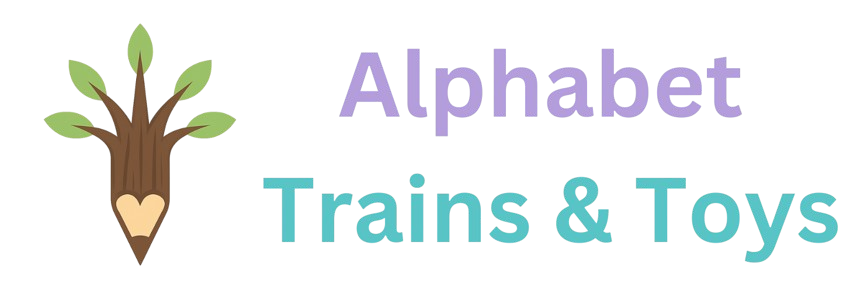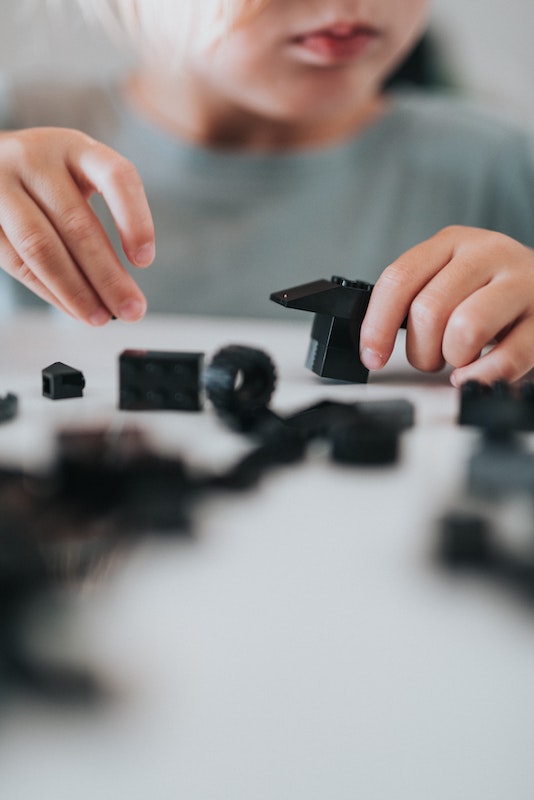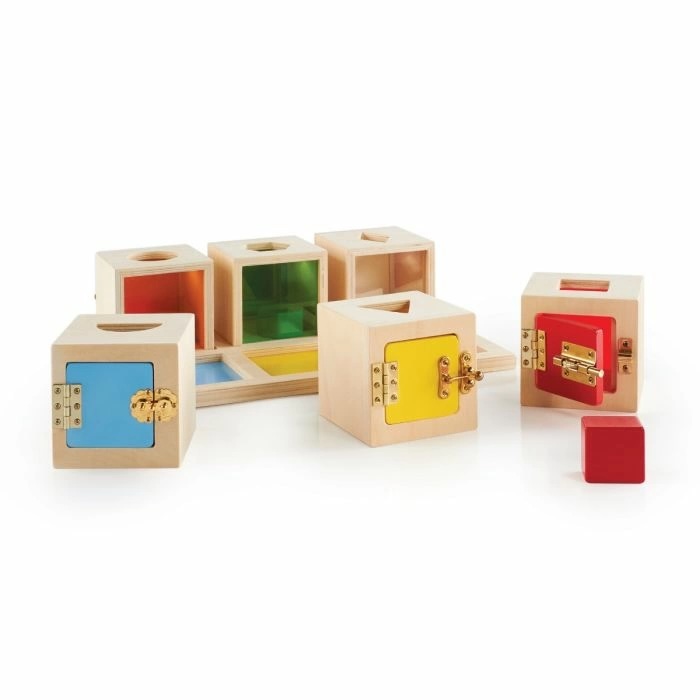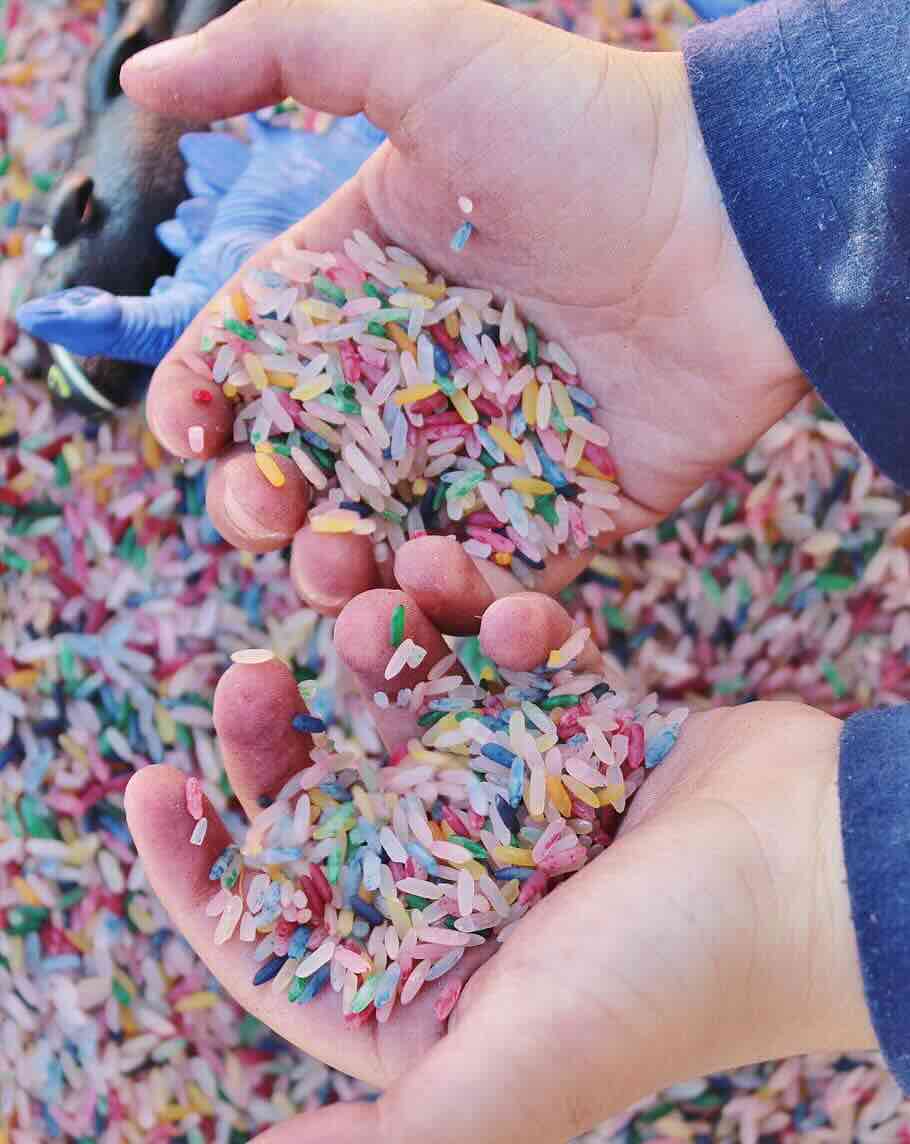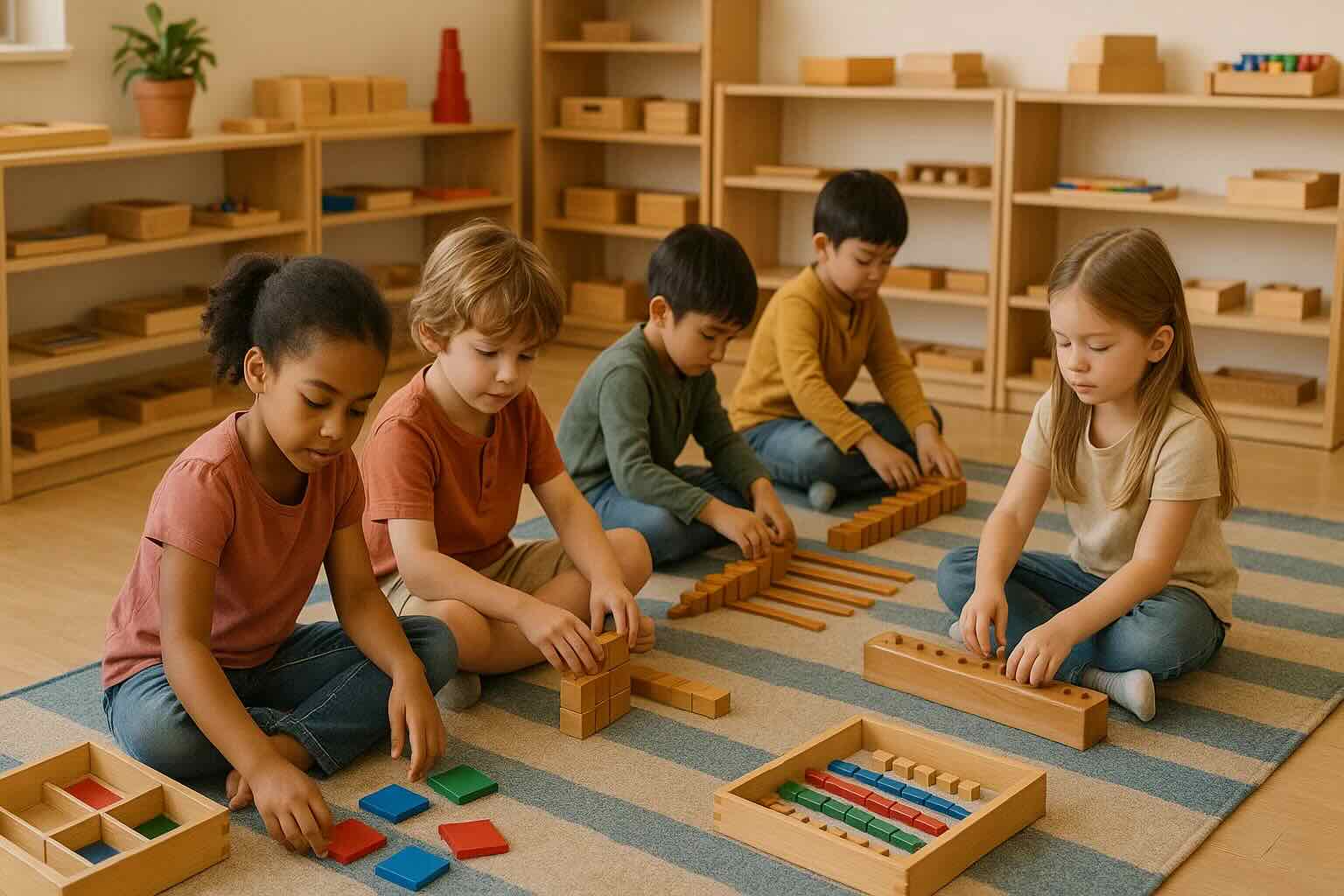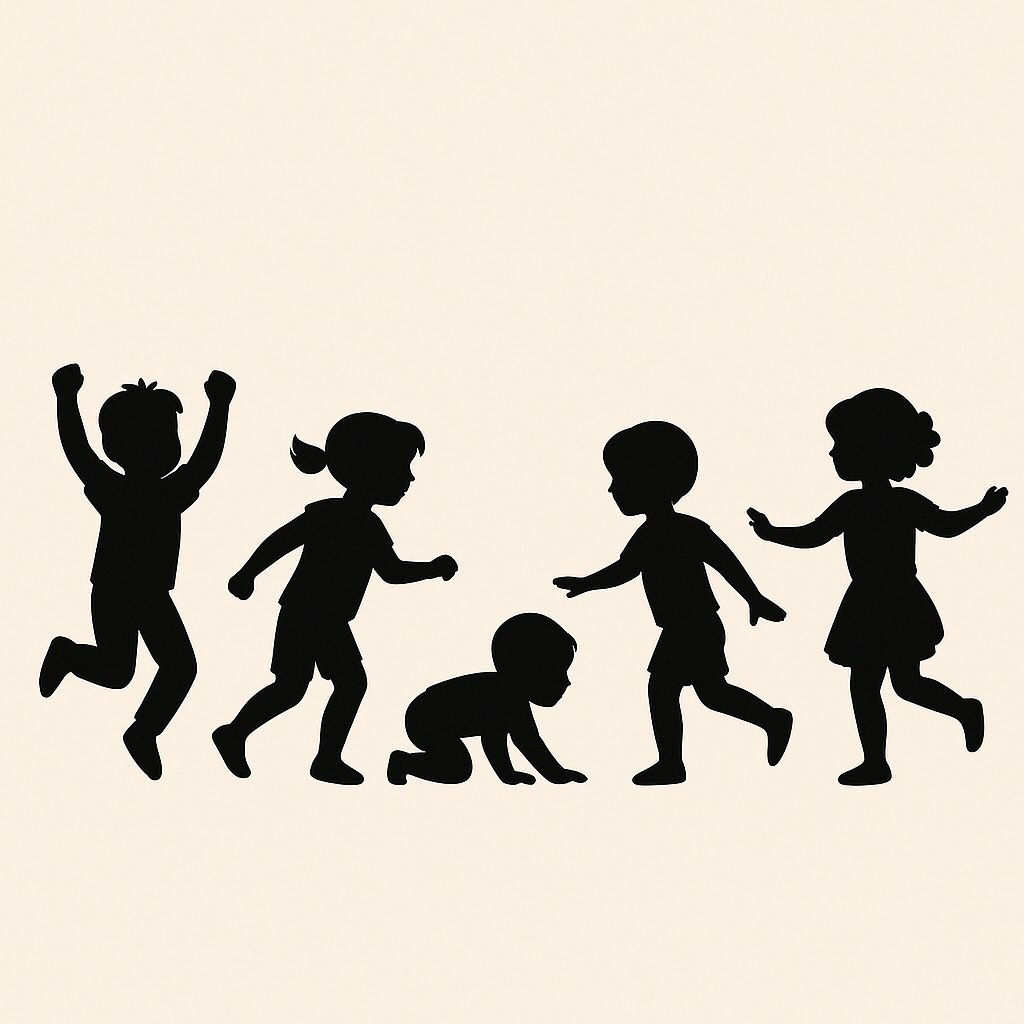Toys are fun, entertaining, and thought-provoking tools for kids of all ages. Autistic kids are no different.
The best toys for children with Autism Spectrum Disorders (ASD) are enjoyable, engaging, therapeutic, and beneficial to their well-being. They must be developmentally appropriate while being fun and engrossing.
Toys aid in developing an autistic child’s creativity while improving sensory-motor, social, language, and problem-solving skills.
If you’re looking for toys that are not just fun and quirky but stimulating and educational, you’re in the right place. We put together a list of the top ten toys to fill your playroom with.
In this list, we tried to cover as many types of toys as possible and have classified them based on sensory toys, puzzles, educational toys, and physical activity toys. There’s also a brief guide to help you pick the best toys based on children’s needs and wants.
Sensory Toys
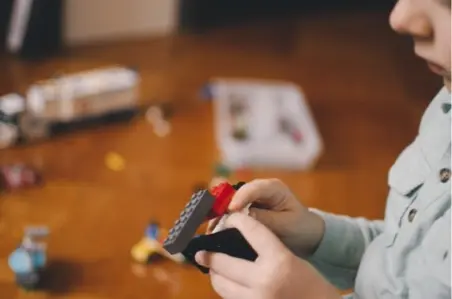
Sensory toys offer simple yet effective ways of addressing an autistic child’s sensory processing problems. In some cases, they can even help overcome them.
These toys come in all shapes and sizes and are specially designed to engage a child’s physical and cognitive skills by stimulating their sense of sight, smell, sound, touch, and taste. While one study has found that sensory toys can promote social interaction in autistic children, another study concludes that it can improve an autistic child’s sensory awareness and alter the brain's responses to sight, sound, touch, and movement.
1. Wooden Music Box
This old-fashioned handcrafted music box is made from high-quality solid hardwood. When your child cranks the handle, the music plays and a wooden piece bobs up and down.
The wooden music box engages your child’s auditory and visual senses while strengthening hand and wrist muscles. Children can learn mechanical action while enjoying the sound and interaction this wooden toy provides.
Shipping is free and the toy comes with a 90-day return policy.
2. Fidget Toys
Fidget toys can serve as great stress and anxiety relievers to autistic kids. They work well as tactile and sensory stimulators for your child. They work especially well for times when they’re alone and don’t have anyone around to calm them. It’s a must-have for long trips and outings when you want to keep your child engaged and occupied.
What are some examples of fidget toys? There are many types of fidget toys from squeeze balls to massage rings and foam balls to water beads. For utmost safety, go with fidget toys that are made from environmentally friendly and non-toxic materials.
3. Chew Toys
Most autistic kids love chewable toys because they help regulate emotions and anxiety. They also make excellent on-the-go oral sensory inputs while keeping your child’s sleeves and fingernails intact. These types of types help develop biting and chewing skills.
Oral sensory chew toys come in different shapes, textures, and patterns. Preferably, they should be made from non-toxic food-grade silicone. While some can be hand-held, others come in jewelry-like pieces that can be worn around the neck or wrists. Here are some options you can try:
- Why not get a chew toy that can be worn around the neck like a necklace? Pendant chew toys can be conveniently worn around the neck so they’ll always be within easy reach. When looking for pendant chew toys, go for high-quality materials and necklaces with a breakaway clasp for safety.
- Necklace chew toys typically have medium to large beads that your child can safely chew on. Though they’re made for mild to moderate chewing, no chew toy is absolutely indestructible so it’s best to inspect it once in a while for signs of wear and tear.
- Pencil toppers. Children sometimes develop a habit of chewing on pencils, fingernails, and other oral fixations. By giving chewable pencil toppers, you can redirect bad habits towards safer objects that are specially designed for chewing.
Chew toys are subjected to a lot of stress from our little ones so it’s a good idea to check if the materials they’re made from are durable and safe enough to be placed inside the mouth. If it’s a necklace-type of chew toy, make sure it has a breakaway clasp. Lastly, get one with a 90-day guarantee or longer.
Puzzles
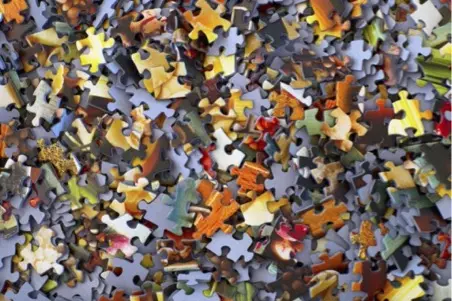
Puzzles stimulate the brain and the sense of touch. They’re often a favorite among autistic children. Puzzles can include colorful and attractive shape sorters, board games, wooden name puzzles, personalized Name Puzzle, and jigsaw puzzles.
4. Wooden Blocks
These US-made toddler-sized hardwood blocks from Alphabet Trains are ideal for children from one to three years old. Each set comes with 15 sustainably sourced blocks in different shapes and sizes as well as an easy-grip wooden box to store them in.
You can use this toy to teach your child about basic shapes, encourage them to grasp and stack, and strengthen their ability to pass objects between hands. It also helps develop spatial awareness and perception skills.
5. Tegu 14-Piece Magnetic Wooden Blocks
Let your child indulge in some open-ended play with Tegu magnetic wooden blocks. Each set has 14 blocks with five shapes, is made from Honduran hardwood, and features non-toxic water-based finishes. It even has a beautifully made box to keep the pieces in.
Each set of blocks support humanitarian efforts and responsible business practices in Honduras by participating in social outreach, reforestation, and education initiatives.
Encourage creativity and imagination while teaching your child the joy of building things with Tegu’s 14-piece magnetic wooden blocks. This toy is suitable for all ages.
6. Stacking Toys
Does your child enjoy building things and putting them together? Gift your child a wooden stacking toy. Kids can learn how to stack the block toys from largest to smallest all while developing their problem-solving skills.
With the different colored boxes, they can effectively associate colors with sizes. They will eventually learn to tell the difference between the different sizes and how they fit together. The pieces are easy to hold and come with rounded corners for added safety.
Block puzzle games such as these develop kids’ imaginations, logical, creative, and reasoning skills.
Educational Toys
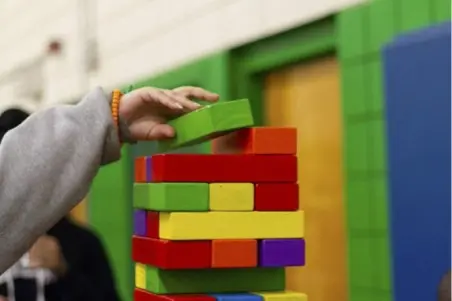
The best educational toys for autistic children go beyond the academic curriculum. Educational toys can also help them become more independent and teach them valuable life skills. Studies have shown that encouraging pretend play in young autistic children can instill better language and thinking skills.
Toys that involve pretend-play or real-world role-playing are thus important in an autistic child’s overall development. One study also proves that screen-based technology like video games can help autistic kids learn practical, social, and concentration skills.
7. Montessori Lockbox
Keep your child engaged for several hours while developing his or her memory and motor skills. This wooden lockbox features 3 different compartments, ten doors, and ten latches. Children can have fun storing and finding their small treasures in the different compartments.
Weighing seven pounds and featuring a convenient easy-grip handle, this multi-awarded toy is lightweight and easy enough for kids to carry around with them.
The lockbox memory toy is made in the United States and is ideal for kids aged three to six years old.
8. Melissa & Doug Number Magnets
Want to encourage your child to learn basic math skills? Melissa & Doug’s colorful large wooden magnets may just be what you’re looking for. Each set includes 37 magnetic pieces with numbers from 0 to 20, five math signs, and a beautifully crafted carrying case.
Give your child this beautifully crafted and educational toy. Your child will easily be engrossed for hours of fun learning.
Physical Activity Toys
Play involving physical activities is essential for an autistic child’s overall development. Physical play activities like jumping and running not only exercise the whole body but can also help develop vital motor and cognitive skills. Moreover, it can be an opportunity to explore and interact with their environment and other people.
While outdoor play is an excellent way to engage your child, several indoor toys can help you achieve the same goals for those days when it’s impossible to go out.
9. Kids Trampoline
Trampolines are great and unique toys for kids when it comes to physical activity. They’re fun, entertaining, and highly stimulating. They are often considered to be a staple sensory toy because they give so much sensory input while taking up minimal space.
Most autistic kids tend to be more focused and calm after jumping on them. It also improves a child’s balance and coordination along with proprioception.
There are many types of trampolines on the market. Depending on your needs, you can even choose one that’s foldable and portable.
10. Balance Board
Balance boards can be great tools for improving an autistic kid’s physical coordination. They can easily provide hours of uninterrupted fun while helping your kid improve balance and steadiness.
Things to Consider Before Buying Toys for Autistic Kids
Buying toys for your autistic kid can sometimes be challenging as you’re prone to overthink your decision. Don’t worry. This brief guide on buying toys can help you make the right choice and ensure that the toys you buy will be put to good use.
Embrace Their Interests
Children with special needs have their own interests. You’re more likely to choose a toy they’ll love if you play up to the things they’re interested in. Your assignment is to find out what they like and find toys that encourage and inspire those interests.
If your child likes cars, consider buying toy cars or toys that are related to that interest. It could be a balanced bike, a rolling push toy, or a car-themed board game.
Disregard the Recommended Age for Toys
Most toy manufacturers grade their toys for certain ages to help parents with their buying decisions. However, as a parent, you have a unique understanding of your child’s needs.
As long as the toy isn’t a safety hazard, it doesn’t matter if you buy a toy for five-year-olds for a ten-year-old kid.
If you’re buying a gift for someone else’s child, you can ask the parents about their child’s needs.
Choose Multi-Use Toys
Toys that can be used in different ways are usually good choices for autistic kids and children with inconsistent development stages.
Consider Children’s Sensory Needs
Kids with ASD have several sensory needs. Some children crave motion and enjoy looking at things that move, spin, revolve or light up. They need toys that are visually stimulating and appealing. Others gravitate toward toys that are tactile and require repetitive touching.
Some kids have issues with oral sensitivity or love to chew. These kids need orally stimulating toys. In such cases, non-toxic, chewable toys can be a great help. Others have specific auditory needs like an attraction towards rhythmic and repetitive sounds. For them, toys like pop tubes and rainmakers that deliver non-irritating sounds are best.
Different kids have different needs so look for toys that fulfill your child’s specific sensory needs. This will give him or her great sources of joy and pleasure and will also help ensure that the toys you pick won’t sit in a corner unused.
Promote Motor Skills Development
Toys like balance boards, trampolines and fidget toys can work wonders for encouraging fine motor skills and balance development. Physical activities can also help keep an autistic kid active, focused, and calm.
Conclusion: Consider Personal Interests, Usefulness, Durability, and Safety
That was the list of the top ten toys for autistic kids. When it comes to buying toys, you need to gauge their usefulness, durability, and safety. It's best to pick toys that help with their overall development like cognitive and physical skills.
Having said that, remember that not all toys work well for everyone. No amount of developmental and cognitive benefits will help if the toy doesn’t interest your child. Your kid’s interests and needs should therefore always come first when it comes to buying toys.
If you’re on the fence about a toy, you can also check online for reviews and testimonials.
Lastly, choose quality over quantity. Instead of buying ten toys that end up gathering dust in a corner, it’s better to buy one toy that will be played with a lot.
Unlock Endless Possibilities of Play!
Dive into our extensive collection of Sensory Toys—each designed to spark curiosity, enhance learning, and develop essential skills through the joy of play.
Explore Sensory Toys Now